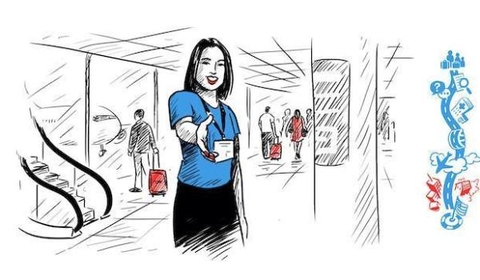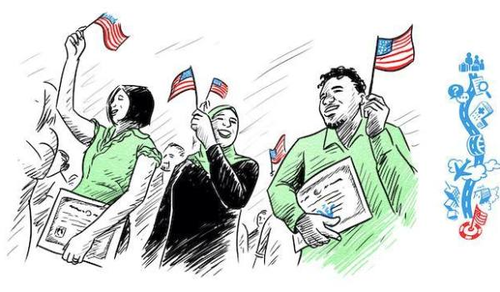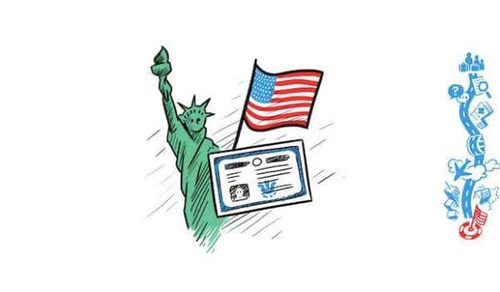Step 6: Arrival

Step 6: Arrival
Your Resettlement Agency is responsible for helping you with basic services for your first 30-90 days in the United States. Resettlement Agency staff will make sure that you have housing during your first month in the United States, and they will look for housing that is clean, affordable, and in a safe neighborhood. You will have the legal right and responsibility to work in the United States and the Resettlement Agency will connect you to employment services. If you have school-age children, they can attend free, public schools.
As soon as you arrive in the United States, you will enjoy the same rights as other people living there, including the freedom of speech, freedom of religion, freedom of assembly, and freedom of movement. You cannot be arrested or imprisoned for expressing an opinion, practicing your religion, or meeting with a group of friends. After the first year, you must adjust your immigration status to that of lawful permanent resident, and after five years, you may apply for U.S. citizenship. Once you become a citizen, you will be allowed to vote in local and national elections.


Frequently Asked Questions
A Resettlement Agency will provide assistance with housing, medical appointments, job-seeking support, and other essential services for at least 30-90 days after your arrival in the United States. The Resettlement Agency will also provide basic furnishings, food, necessary seasonal clothing, and other personal care items. You will have a legal right to work and will be expected to seek employment and become fully self-sufficient as soon as possible.
Yes, your Resettlement Agency will help you access job search assistance wherever you are resettled. Finding employment in the U.S. is important, and your first job will probably not be in the same profession or field as your job in your home country. It may be an entry level, non-professional job, and may even be temporary or part-time. Because the cost of living is high in the United States, it is common, and often necessary, for both men and women to work outside the home.
Public transportation is available in most U.S. cities. Cars are not provided as part of the resettlement process. Therefore, you will likely need to rely on public transportation to access your first job.
There are no refugee camps in the United States; therefore, you will not live in a camp. Housing varies from one location to another. In general, the housing provided is a modest apartment furnished with items that have been donated by other members of the local community. It is quite common for the apartment buildings in which refugees are placed to house a wide variety of people representing diverse races and ethnicities, cultures, religions, and backgrounds.
Admission to the United States as a refugee allows you to reside there permanently and eventually to apply for citizenship. You should consult your local Resettlement Agency before planning to travel outside the United States. Anyone with refugee status or lawful permanent resident status must obtain a refugee travel document before leaving the United States. This is similar to a passport and it is required to re-enter the United States. Your decision to resettle in the United States does not make it impossible to return to your home country, but doing so before obtaining citizenship could affect your status in the United States.
Instructions for applying for a travel document may be found here:
http://www.uscis.gov/sites/default/files/files/form/i-131instr.pdf
Eligible family members that may be on your case and accompany you to the United States include your spouse and unmarried children under the age of 21. If your spouse or unmarried children under the age of 21 were not on your case, they may be able to follow you to the United States if they are eligible for resettlement. You may also have some options to apply for your parents to be resettled as refugees, and depending on your immigration status (refugee, lawful permanent resident, or U.S. citizen), you may be eligible to petition for other relatives to immigrate to the United States. Your Resettlement Agency can assist you with family reunification efforts after you are resettled. More information on who you may petition for is available at http://www.uscis.gov.